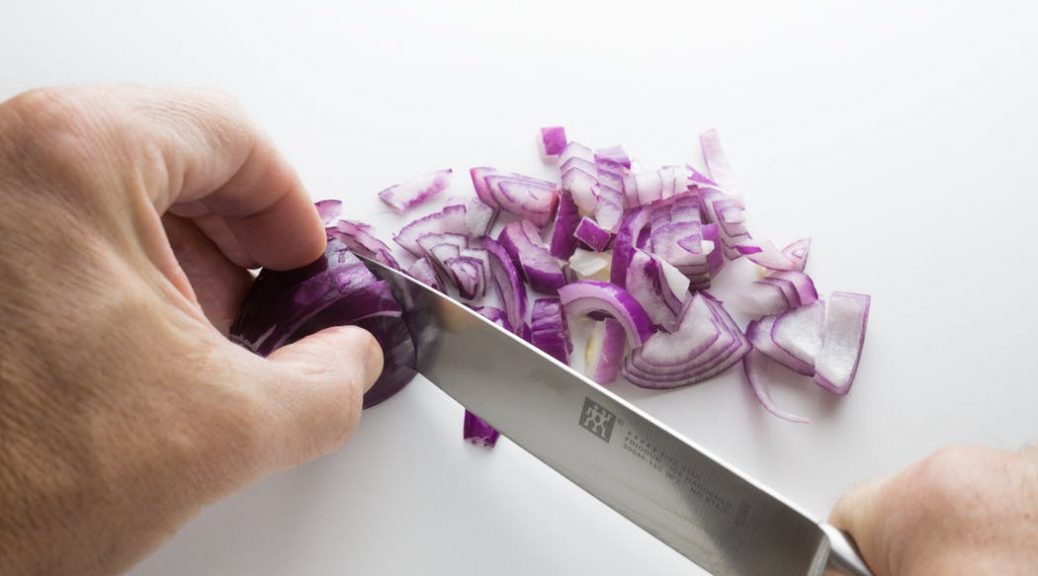
Do You Know all of the Health Benefits of Onions?!!
 10 Health Benefits of Onions
10 Health Benefits of Onions
Onions are considered one of the world’s healthiest foods and given that there are varieties of onions, how you use them could be different each time! Grown all over the world, the first record of using onion for health purposes and healing was in the 17th century. The truth is, onions are therapeutic, which is lucky, seeing as Americans eat over 20 pounds of onion per capita, per year. Want to know what is so good about them? Read on!
1. Improved Immunity
Onions contain powerful antioxidants. Antioxidants are flavonoid compounds, which delay or help repair oxidative damage to different cells and tissues in the body. Eating onion regularly can also protect the body and help regenerate the powerful antioxidant vitamin E, which the body needs as a fat-soluble nutrient. Plus, onion contains allicin. Allicin, a plant derived nutrient, is a killer of various viruses and bacteria, which means it’s a good thing if you eat some raw onion when you feel the onset of a cold or flu, this way the immune effect will be the strongest.
2. Reduce inflammation
When inflammation in the body is working properly, it fights against the disease or protect a wound, gets rid of the virus and then leaves the body, It’s when it goes a bit wrong and doesn’t leave the body, that your immunity is compromised. Naturally anti-inflammatory, onions can help fight inflammation, when the inflammation is the problem. Quercetin, found in onion, has proven to inhibit inflammation-causing leukotrienes and the prostaglandins and histamines that are in rheumatoid arthritis, and osteoarthritis. So it can help inflamed joints and chronic inflammation pain.
3. Regulate blood sugar
There has been extensive research into how onions affect blood sugar. This is good news for the 29 million people in the United States who have diabetes. The tests showed that people, who were diagnosed with type 1, and those with type 2 diabetes, had a lower blood sugar level (glucose reading) after eating onions, and it remained low for up to four hours after eating. This means onion could be very helpful in the management of diabetes. This is because of the sulfur compounds in onions that work to increase insulin production and, therefore, lower glucose levels.
4. Cancer preventer
Onions are the richest natural sources of Quercetin you can find. Quercetin is a powerful antioxidant flavonoid that has been linked to inhibiting certain kinds of cancers. Research and clinical trials have been undertaken to learn more about the effect of the quercetin in onions have on cancer, and it is not considered a drug to combat cancer. Eating onions will simply give you many good benefits that could lead to preventing cancer, because of the dietary source of quercetin it contains.
5. Healthy heart
These antioxidants such as quercetin, work to thin the blood and ward off blood clots. This is particularly the case if you eat raw onion. Raw onion lowers the chanced of bad cholesterol (LDL) which keeps hearts healthy. Not just for lowering your cholesterol, eating onions regularly can also lower blood pressure, and keeps the risk of heart attack and heart diseases or heart risks low. Heart risks including arterial hardening and gallstones. Any foods that support heart health are usually recommended by any heart foundation and are part of a balanced diet.
6. Vitamins and minerals
Onions are considered one of the world’s healthiest foods, not surprising as they contain multiple vitamins and minerals. First up there is a rather decent amount of vitamin C in onions, and we all know vitamin C is good for you. Onions also contain vitamin B6. B6 is great for red blood cell formation, Potassium, which is important for low blood pressure, and general heart health and Folate B vitamin bodies need for metabolism and cell growth. Not only the above but they are also a good source of dietary fiber, calcium, iron, low sodium and have no fat.
7. Free radical killer
Free radicals are molecules that attack healthy cells in the body. These free radicals want to steal all the good stuff from healthy cells, like electrons and rebalance, which cause damage to the good cells, this, in turn, affects the body in regards to aging and deterioration. And if your body is overrun with free radicals, oxidative stress is created. You can combat free radicals by eating foods that are high in antioxidants. Onions do this by eliminating free radicals, they even search them out and kill them, and therefore, reducing the aging process and your risk of developing other related diseases.
8. Onion cough syrup
You can make your cough syrup at home from onions, and it does, in fact, taste better than it sounds, and some may say, better than over the counter cough syrups. Using a red or yellow onion, slice it evenly and place at the bottom of a jar. Pour a layer of honey over it, then repeat layering onion slices, and honey until you are out of the onion. (You can use raw or brown sugar instead of honey if you like but it will be much sweeter) Cover the jar tightly and let it sit overnight. After up to 12 hours the liquid in the jar becomes your cough syrup. Take one spoonful, three times an hour. This concoction will begin to break up and mucus, its natural antibiotic properties begin to take effect and the honey works to soothe the throat.
9. Bee stings
The soothing properties of applying a freshly cut slice of onion directly onto a wasp or bee sting can immediately begin to take effect. The enzymes in onions can help break down the compounds found in the venom of a bee or wasp sting. This is what causes the inflammation and subsequent pain and even swelling. Applying onion can reduce all of these things initially. It also helps in the length of time the sting takes to heal. This ‘home remedy’ was once thought to be an old wives tale. Now it is commonly known to be correct, and more importantly, actually work!
10. The healthiest onions
Western yellow onions and shallots are considered the healthiest because of their phenolic and flavonoid content. In general, consuming these versatile vegetables is only ever a good thing, no matter what kind of onion. These two kinds of onions are both from the allium family, and they can be pretty easily interchanged in recipes. They have a slightly different taste in regards to pronounced sweet flavor (shallot) and bite (yellow onion). That does not make them unusable. If anything, it makes them more desirable to the palate, and to the health system.
Today’s article was written by Charmaine and is shared from the following website: http://health.facty.com/food/nutrition/10-health-benefits-of-onions/?utm_source=bing&utm_medium=c-search&utm_term=health%20benefits%20of%20onions&utm_campaign=f-h-10-health-benefits-of-onions&msclkid=57e38f7f3d051891d8f5d5c259ba940f